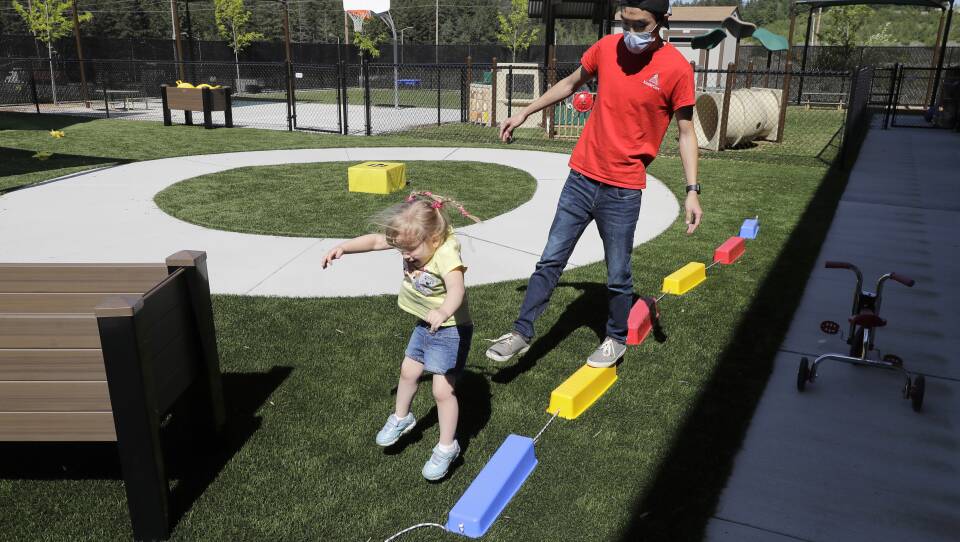The COVID-19 pandemic has brought new challenges and exacerbated long-existing problems in early education and child care, from labor shortages to the industry’s low pay scales.
Lauren Kennedy, the co-founder of the affordable child care advocacy group Neighborhood Villages , joined Boston Public Radio to share how early education and child care workers and advocates have fared throughout the pandemic.
Kennedy said Massachusetts “has actually been leading the nation in setting up a comprehensive testing program for the early education and care sector” due to pooled testing for participating early education and care providers, as well as the distribution of rapid tests.
“Since June of 2021, [Massachusetts] has really invested in building an infrastructure and architecture and a plan to be able to meet moments like this,” Kennedy told hosts Jim Braude and Margery Eagan.
Although testing access and COVID-19 tracking measures have benefitted the industry recently, Kennedy believes the pandemic is a “crisis layered upon a crisis” as providers see increased demand for child care amid an exacerbated labor shortage.
“In this moment, it's not just programs competing with each other for teachers; they're competing against McDonald's, they're competing against Amazon,” Kennedy said. “And we can't — there is no room in this field to raise wages to be at a competitive level. Because like any industry, that would mean passing the cost off onto parents and parents can't pay it.”
While the Senate is still negotiating their version of the Build Back Better Act, the House passed their version in late October. The act would invest approximately $380 billion in child care and pre-kindergarten for six years, and cap day care costs at 7% of income for families earning up to 250% of their state’s median income.
In Massachusetts, child care advocates are urging lawmakers to pass the Common Start Bill, which would prioritize child care assistance to low-income, high-need families on a five-year timeline. The legislation also seeks to provide funding directly to child care and early education programs in an effort to address low pay scales for workers.
Despite measures at the federal level to make child care and early education more accessible, Kennedy believes that Massachusetts’ proposed Common Start legislation “may be even more generous and more robust than Build Back Better.”
“In Massachusetts, our commitment is that [child care and early education] is a public good,” Kennedy said. “And like K-12, we are going to treat it that way, and understand that families will make a fair contribution, but that we will not be means testing the program as a whole — at least not in this moment.”
Kennedy hopes that increased attention to child care and early education from the government could ease the burdens faced by the industry.
“It's a fundamentally broken market, where the cost of providing the service is more than a family can afford,” Kennedy said. “It's also more expensive than a childcare provider can afford. And in order to make it work, you have to suppress the wages of the educator. And we need to stand up and say this is not right, it is unjust.”
Lauren Kennedy is co-founder of Neighborhood Villages, a nonprofit that works to improve access to affordable child care and early education.







